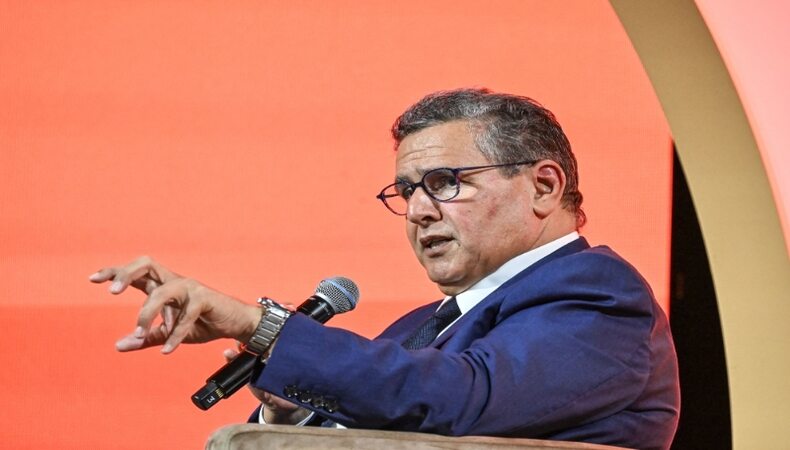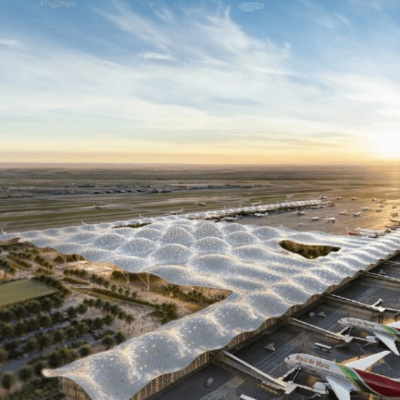Former Moroccan Prime Minister Calls for Reconsideration of 2020 Normalization with Israel

Former prime minister of Morocco and head of the opposition Justice and Development Party (PJD, Abdelilah Benkirane has strongly urged the Moroccan government to review its decision to formally normalize relations with Israel in 2020. Benkirane forcefully said in a video posted on the PJD’s official Facebook page that the continuous war in Gaza has eliminated any “moral justification” for keeping diplomatic relations with Israel. His comments coincide with almost a year-long battle in Gaza, where Israel’s military operations have escalated and resulted in general criticism all across the area.
Benkirane’s demand for review emphasizes mounting domestic Moroccan pressure since public opinion of the normalizing agreement has been mainly negative. His remarks not only challenge the morality of ongoing ties with Israel but also capture the general discontent among Moroccan political factions and civil society organizations that regard the normalizing as a betrayal of the Palestinian cause, a long-standing priority in Moroccan foreign policy.
Solidarity Among Regional Tensions: with Palestinians and Lebanese People
Speaking at a General Secretariat meeting of his party in Rabat, Benkirane showed unflinching allegiance to the Palestinian people living in both Gaza and the seized West Bank. He also backed the Lebanese people, who are once more suffering the results of growing conflict between Israel and Hezbollah. Given the mounting death and damage in Gaza, Benkirane underlined that Morocco’s current accords with Israel no longer have any rational, logical, or moral justification.
In his remarks, he expressed the palpable suffering experienced by Moroccans even if the government stays officially involved with Israel. He said movingly, “Moroccans may remain silent, but they feel as though these bullets have pierced their own bodies, as though they have killed their brothers.” This attitude reflects the emotional and ideological gap between the political choices of the Moroccan government and the opinions of the general people, who regard the bloodshed in Gaza as extremely personal, almost as an attack on their own country.
Benkirane’s comments also represent the constant posture of his party on Palestine, which corresponds with other political groupings and civil society organizations in Morocco that have historically backed Palestinian sovereignty and opposed any political action deemed as compromising this posture.
Extended Commentary of the Normalization Agreement
Benkirane has been vocal in his criticism of Israel’s military operations in Gaza as well as the normalizing agreement struck in December 2020 under Saadeddine Othmani, his successor. The accord belonged to the larger Abraham Accords, a set of normalizing pacts between Israel and numerous Arab nations brokered by then-US President Donald Trump. Morocco gained major political and diplomatic advantages in return for restoring relations, most famously US acceptance of Moroccan sovereignty over the disputed Western Sahara. For many Moroccans, nevertheless, these benefits came at a price since the accord represented a break from the nation’s long-standing stance of endorsing Palestinian autonomy.
Benkirane reaffirmed last week his opposition to the normalizing agreement and attacked the course Othmani, the prime minister at the time the accord was made, followed. Benkirane made it very evident at the 18th National Youth Forum of the Justice and Development Party that he would not have sought normalizing with Israel had he stayed in office. He even went so far as to say that he had urged Othmani to “keep your dignity” instead of following the agreement, therefore advising him to resign at the time.
Reflecting the great divide in Moroccan leadership over the normalizing decision, Benkirane also stated that he had asked King Mohammed VI to remove Othmani from his prime ministership. Emphasizing that the Justice and Development Party had always opposed normalization and that it still does so regarding the choice as a moral compromise in favor of political expediency, the former prime minister underlined.
Debate Inside Morocco and Throughout the Region
Later on, Othmani—who helped to sign the agreement—described the process as “painful and difficult,” noting the inner struggle he was under as prime minister. Defending the pact as a state decision, he sought to ensure Morocco would gain strategically and over long terms. Othmani underlined furthermore that Morocco’s support of Palestinian rights is unaltered even if the normalizing deal was not struck at the price of the Palestinian struggle. But his defense has done nothing to calm the debate the agreement started.
Particularly among political groupings, Islamic and nationalist groups, and human rights organizations, the choice to restore ties with Israel sparked intense discussion and controversy inside Morocco. Many interpreted the change as a break with Morocco’s traditional and loud support for Palestinian independence, a stance that had given the nation great credibility in the Arab world. Critics contend that although the Abraham Accords gave Morocco US recognition over Western Sahara, their moral and intellectual obligations to Palestine were sacrificed at too great a cost.
Outside of Morocco’s boundaries, the normalizing accord generated conflicting responses all around. Although some Gulf governments already had relations with Israel based on the Abraham Accords, the general Arab public saw the agreements with mistrust, especially in nations where strong pro-Palestinian attitudes prevailed. The reaction in Morocco was instantaneous, with demonstrations starting and several political groups expressing their criticism.
The Abraham Accords and Strategic Gains from Morocco
Declared on December 20, 2020, the Abraham Accords include Morocco’s normalization with Israel. Under the terms of the agreement, Morocco formally established diplomatic relations with Israel alongside the United Arab Emirates, Bahrain, and Sudan. The main advantage for Morocco was US acceptance of its sovereignty over Western Sahara, a long-challenged area where Morocco has struggled greatly to claim authority. The Moroccan administration presented this diplomatic triumph as a strategic victory together with other possible economic and security gains.
The accord did, however, also bring questions over the possible long-term effects on Morocco’s internal politics and Arab world position. While some considered the agreement as a pragmatic action in line with changing geopolitical reality, others felt it betrayed Morocco’s traditional leadership on the Palestinian matter.
Constant Discussion Regarding Normalization
Both inside Morocco and throughout the region, the normalization of relations between Morocco and Israel is still a very divisive matter. Benkirane’s appeal for re-evaluation captures a general discontent among many Moroccans who believe their nation has compromised its moral posture in order to achieve temporary political advantage. Political forces like the Justice and Development Party advocating a review of the agreement will probably put more pressure on the Moroccan government to change its ties with Israel as Israel’s military operations in Gaza carry on.
The argument over normalization also begs more general issues of Morocco’s place in the Arab world and its capacity to balance conflicting national and foreign agendas. Morocco’s government would find itself further stuck between its strategic objectives and the moral and intellectual convictions of its people as the war in Gaza carries on.




